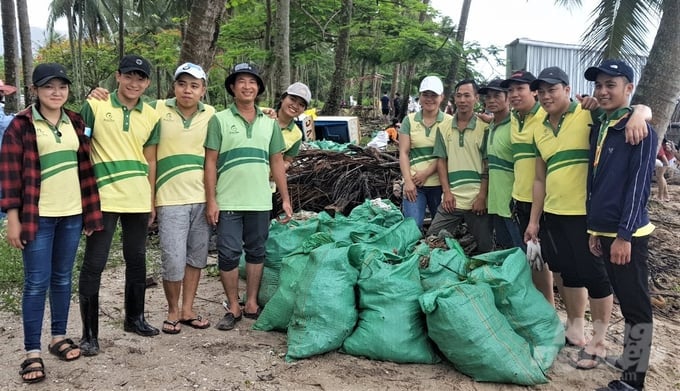November 21, 2025 | 12:23 GMT +7
November 21, 2025 | 12:23 GMT +7
Hotline: 0913.378.918
November 21, 2025 | 12:23 GMT +7
Hotline: 0913.378.918

Ms. Karin Isdahl, Commercial Counselor, Norwegian Embassy Trade Department, introduces a Feasibility Study on a Deposit-Refund Scheme (DRS) in Vietnam, helping to recover recyclable plastic waste in Phu Quoc city. Photo: Trung Chanh.
On the morning of November 21, in Rach Gia City, the delegation of the Norwegian Embassy, led by Ms. Karin Isdahl, Commercial Counselor, Norwegian Embassy Trade Department, led the delegation. They had a meeting with leaders of the People's Committee of Kien Giang province, introducing the Feasibility Study on the Deposit - Refund Scheme (DRS) in Vietnam, helping recover recyclable plastic waste in Phu Quoc City. Mr. Le Quoc Anh, Vice Chairman of Kien Giang Provincial People's Committee, and leaders of a number of departments and branches welcomed and worked with the delegation.
Accordingly, the DRS mechanism operates on the principle that consumers must pay a small deposit when purchasing plastic bottles or beverage cans. The deposit will be refunded when they return the box to the designated collection point. This is similar to the way that beverage manufacturing and trading businesses previously applied to glass bottles.

Volunteers collect littered plastic waste polluting the environment at tourist destinations and beaches. Photo: Trung Chanh.
According to assessments, Phu Quoc City currently generates about 300 tons of waste every day. Of these, about 50% is organic waste, which can be collected and composted to serve agricultural production, 30% is recyclable waste such as plastic bottles, and plastic waste from plastic bags, the remaining solid waste needs very little burial. Collecting waste for burial, and even burning it to generate electricity, is absolutely not a sustainable solution, but in the long term it is necessary to follow the direction of green technology, Net Zero carbon...
If the Deposit-Refund Scheme (DRS) is successfully implemented and applied, it will help Phu Quoc City collect a significant amount of plastic waste, which is being discharged carelessly, causing pollution at tourist destinations and beaches. From there, we aim to turn Phu Quoc into an urban area with a reduction in plastic waste, eliminate plastic pollution, and build a clean city - a blue ocean.
Translated by Hoang Duy

(VAN) Over the past two decades, the unified legal framework for water resource management has been perfected, becoming a crucial foundation for ensuring national water security.

(VAN) The land-data cleansing campaign in Dien Bien is entering its final stretch, yet weak infrastructure, limited personnel and fragmented multi-period datasets continue to create major obstacles.
/2025/11/20/0204-2-115235_496.jpg)
(VAN) Not only do carbon credits bring a great revenue source, but they also contribute to better forest protection and development. However, this potential remains largely untapped.

(VAN) Applying modern technology is helping environmental monitoring and oversight of management quality.

(VAN) Viet Nam’s economic losses could reach 12–14.5% of GDP annually by 2050 if no climate-response measures are implemented.

(VAN) Initial calculations suggest that blue carbon initiatives could reduce CO2 emissions by approximately 3 million tons in Viet Nam by 2035.
/2025/11/19/4020-1-172955_773.jpg)
(VAN) The Emission Reductions Payment Agreement in the North Central Region (ERPA) has generated positive impacts across the highland areas of Nghe An.